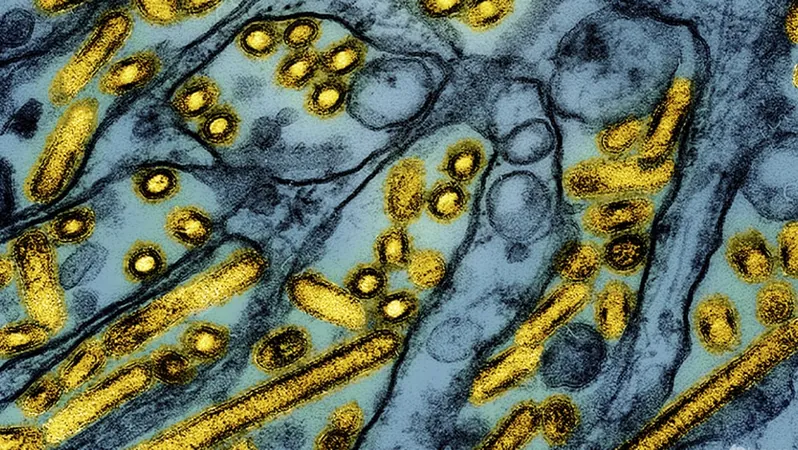
Shocking Development: First US Child Tests Positive for Bird Flu! What You Need to Know!
2024-11-23
Author: Wei
In a surprising and concerning turn of events, a child in Alameda County, California has become the first in the United States to test positive for bird flu, as reported by health authorities on November 22. Health officials are taking immediate action by providing checks and preventive treatments to individuals who may have been exposed at the child's day care center.
The young patient, who has shown only mild symptoms, is currently recovering at home following a prescribed course of antiviral medications. The US Centers for Disease Control and Prevention (CDC) and the California Department of Public Health (CDPH) have reported that close family members have been tested for the virus, with all results coming back negative, alleviating some initial concerns.
Authorities are actively reaching out to caregivers and families at the day care, where the child first exhibited mild symptoms before the positive test result came in. It's worth noting that tests indicated low levels of the bird flu virus, which suggests the child was likely not contagious at the time of testing. Moreover, a follow-up test performed four days later yielded negative results, further supporting this assessment.
Day care centers in the U.S. generally cater to young children, ranging from six weeks to five years of age, a demographic that naturally raises the stakes for public health officials. Dr. Tomas Aragon, director of the CDPH, emphasized the importance of remaining calm and informed: "It’s natural for people to be concerned, and we want to reinforce for parents and caregivers that based on the information we have, we don’t think the child was infectious."
He also pointed out that no documented cases of human-to-human spread of bird flu have been reported in over 15 years, providing some reassurance to the worried public. To date, instances of bird flu transmission between humans have been rare, typically limited to close contacts of infected individuals.
Incidents of human cases of bird flu are expected to occur, albeit infrequently, often with uncertain origins of exposure. This monitoring effort comes as the CDC has noted 55 cases of H5 bird flu in humans across the United States in 2024, with a significant concentration of 29 cases observed in California alone.
The CDC continues to assess the risk for the general population as low, although individuals who work closely with livestock, including birds and other animals, may face a higher risk. Since March, a multistate outbreak of the Highly Pathogenic Avian Influenza, or H5N1 bird flu, was first identified among dairy cows, raising alarms about potential zoonotic transfers and the virus's capacity for cross-species transmission.
With rising concerns regarding the adaptability of the virus, public health officials urge vigilance and proactive measures, particularly for those in direct contact with vulnerable agricultural species. As the situation develops, stay informed and take appropriate precautions to ensure the health and safety of your family!



 Brasil (PT)
Brasil (PT)
 Canada (EN)
Canada (EN)
 Chile (ES)
Chile (ES)
 España (ES)
España (ES)
 France (FR)
France (FR)
 Hong Kong (EN)
Hong Kong (EN)
 Italia (IT)
Italia (IT)
 日本 (JA)
日本 (JA)
 Magyarország (HU)
Magyarország (HU)
 Norge (NO)
Norge (NO)
 Polska (PL)
Polska (PL)
 Schweiz (DE)
Schweiz (DE)
 Singapore (EN)
Singapore (EN)
 Sverige (SV)
Sverige (SV)
 Suomi (FI)
Suomi (FI)
 Türkiye (TR)
Türkiye (TR)